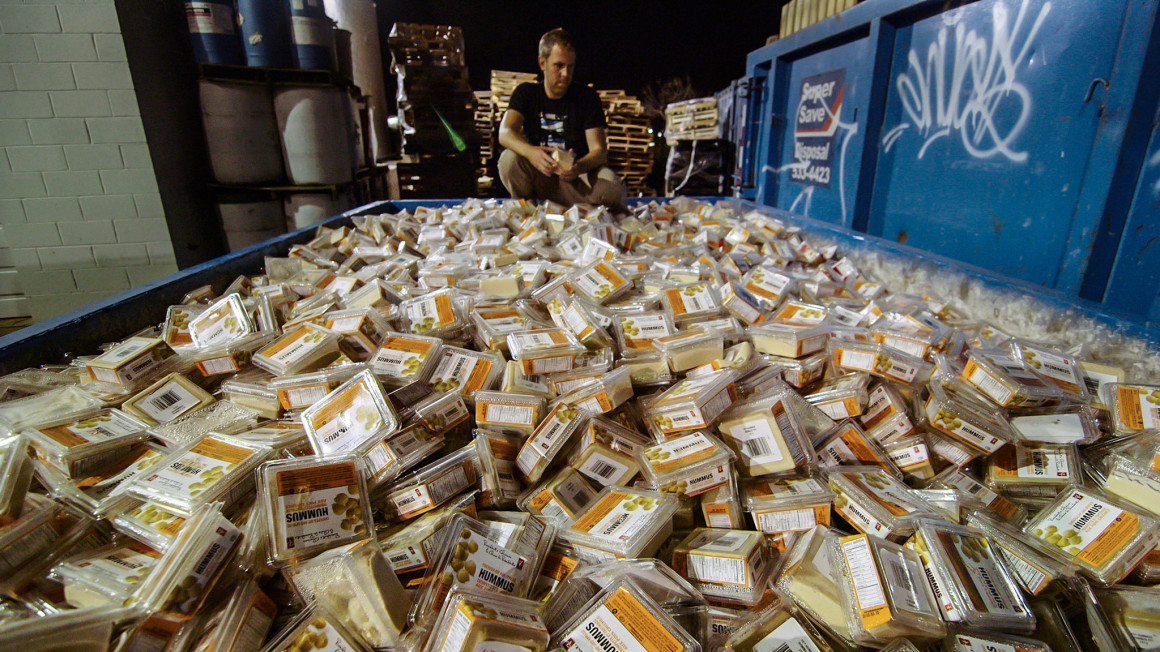
Just Eat It takes a bite out of food waste
By Tamara Cottle, September 18 2014 —
Vancouver filmmakers Grant Baldwin and Jen Rustemeyer dive into grocery store dumpsters to unveil a shocking amount of food being wasted in their second feature documentary, Just Eat It.
The idea for Just Eat It came after completing their first film, The Clean Bin Project, where both Rustemeyer and Baldwin pledged not to buy material goods or produce waste for a year. After witnessing so much food waste while shooting garbage and recycling audits for The Clean Bin Project, the filmmakers decided to stop buying food and attempt to survive on food they could rescue from dumpsters for six months.
“We pretty much found
everything that you could imagine — everything from frozen fish, to rice to maple syrup, chocolate, fresh produce and cereals. I mean we found something in every food group,” says Rustemeyer.
The couple was able to retrieve so much food that family members were grocery shopping at their house.
Though they were able to collect enough food, finding quality of food was a challenge.
“We were coming from The Clean Bin Project where we were living zero waste and eating food that had no packaging whatsoever,” says Rustemeyer. “So that was a really big shift for us to go back to eating packaged food.”
For the average Canadian diet, their dumpster-dived hauls were more than adequate.
There’s nothing wrong with eating food that is past its expiry date, but not rotten. However, the social stigma of eating from garbage bins wasn’t always easy to swallow, admits Rustemeyer.
“It was definitely more challenging for me than it twas for Grant,” she says. “I mean, Grant is the one who came up with the idea. He was all gung-ho to do it. He kind of took on this role of hunter gatherer guy and was really excited to go out at night and find food. Whereas I was working my day job at an office and was kind of embarrassed about the whole thing.”
Rustemeyer didn’t let her embarrassment stop her from participating in the project which brings greater awareness to the billions of dollars in food waste, adding up to about 40 per cent of all food produced in Canada being tossed every year.
Both Baldwin and Rustemeyer want to bring attention to the wasted resources used to grow, harvest, package and transport food that is haphazardly thrown away while, according to the UN, one in nine people in the world don’t have enough to eat.
“We hear so many stories about people starving in the world and we need industrial agriculture to pick up the pace,” says Rustemeyer. “But really there are enough calories being produced and if we weren’t wasting that food we could feed everybody.”
